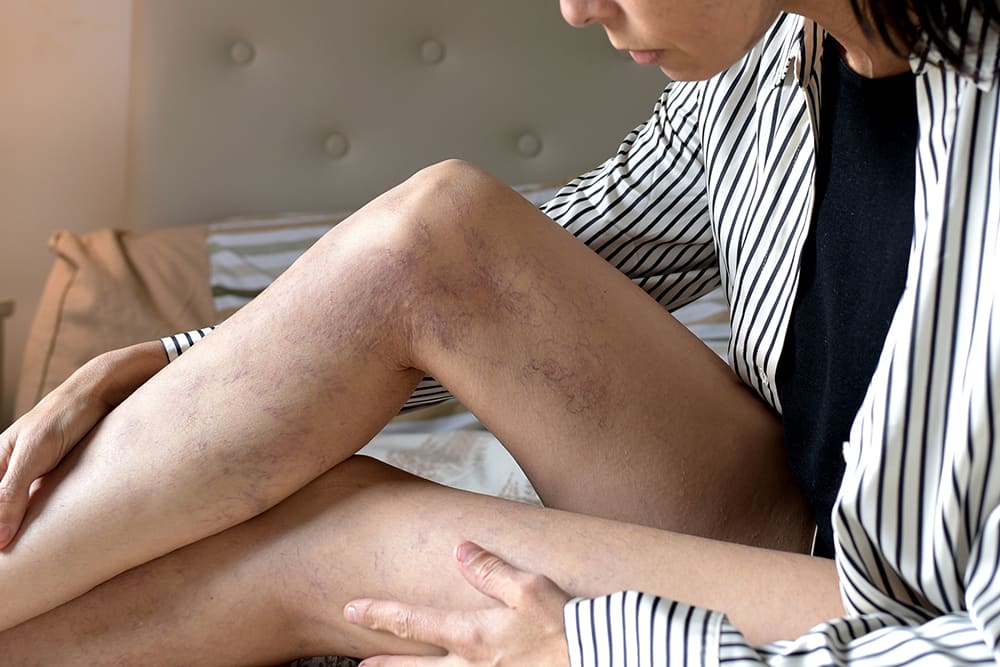What Role Do Veins Play in Wound Care?

Healthy veins are essential for good wound care. They can also reduce the risk of long-term skin damage and other complications such as swelling, discoloration, and fatigue. Taking steps toward improving vein health can, in turn, improve your overall health, including wound care and how your body heals from injury.
With proper attention, care, and maintenance, you can keep your veins in top shape - helping you look better while improving your overall well-being. Read on to learn more about the importance of caring for your veins and some useful tips and suggestions to help keep varicose veins under control.
Healthy Veins Are Essential to Healing
Proper venous circulation is essential for maintaining the ideal environment for wound healing. A healthy circulatory system, including the veins, is vital for wound healing. Research shows that optimal blood flow through the veins ensures the delivery of oxygen and nutrients to the wound site, supporting new tissue growth and preventing infections. Veins also play a critical role in removing waste products and toxins from the wound, facilitating overall healing.
Varicose Veins
Several vascular conditions can hinder vein health and impede wound healing. Some of the most common are:
Deep Vein Thrombosis (DVT)
This is a condition where a blood clot forms in the body’s deep veins, usually in the legs. The clot blocks blood flow and can prevent oxygen and other essential nutrients from reaching the wound site, hindering healing.
Telangiectasis
Spider veins, also known as telangiectasia, can impact vein health and interfere with wound healing. You may notice red, thin, web-like veins near the surface of your skin. Dilated capillaries cause them and can create a barrier to proper circulation in the area, impacting wound healing.
Chronic Leg Ulcer
This condition is typically caused by poor leg vein circulation. A lack of blood flow restricts oxygen and other crucial nutrients from reaching the wound, making it hard for the wound to heal. A chronic leg ulcer can become infected without proper treatment and cause further problems.
Venous Stasis Dermatitis
This skin condition is caused by the same vein-related circulation issues that lead to chronic leg ulcers. It causes dry, scaly, itchy skin patches prone to infection. If left untreated, venous stasis dermatitis can become chronic and cause severe complications.
Cardiovascular Issues that Impact Vein Health
Cardiovascular problems can impact vein health and slow down wound healing. Deep vein thrombosis (DVT) is when blood clots form in the deep veins, disrupting blood flow and impeding wound healing. Peripheral artery disease (PAD) and atherosclerosis also restrict the supply of oxygen and nutrients to the wound, delaying healing. It is crucial to manage these cardiovascular issues for the best chance of wound healing.
A Healthy Lifestyle Leads to Healthy Veins
To take care of your veins and promote the healing of wounds, it’s essential to live a healthy lifestyle. Studies show that eating a balanced diet with plenty of antioxidants, essential fatty acids, and vitamins can help circulation. Exercising regularly can also improve blood flow, strengthen calf muscles, and help blood return efficiently through the veins.
It is essential to quit smoking because smoking harms the circulatory system and makes it harder for wounds to heal and veins to stay healthy. By living a healthy lifestyle, people can help improve their vein health and have better results with wound care.
Treatment Options for Healthy Veins
Various treatment options are available to address vein-related conditions and promote vein health and wound care.
Endogenous ablation techniques, like EVLT and RFA, use energy to close damaged veins and redirect blood flow to healthier ones.
Microphlebectomy is a surgical procedure that removes varicose veins through small incisions to improve blood flow.
Sclerotherapy is a non-surgical procedure where a specialized solution is injected into affected veins to make them collapse and fade away.
These treatment methods effectively eliminate or lessen the effects of vein problems, which can improve wound care and the healing process.
Healthy Veins Are Essential to Wound Care
Vein health is essential for proper wound care and healing. Varicose veins and other vein-related problems can lead to impaired wound healing, infection, and long-term skin damage. Fortunately, there are a variety of treatments available that can help restore healthy circulation in the affected area. With regular checkups from your primary care physician or dermatologist, you may be able to keep your veins in top shape, which will benefit both your overall health and future wound care needs.
Improving vein health can ensure wounds heal quickly and correctly, reducing your chance of long-term skin damage and other complications. Maintaining healthy veins can also help you enjoy a higher quality of life by preventing swelling, discoloration, and fatigue. Talk to our team today to learn about your options for controlling varicose veins.



